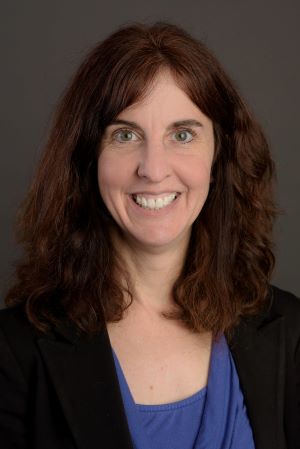
Linda Broadbelt
Sarah Rebecca Roland Professor and Associate Dean for Graduate Research and Education, Engineering
Northwestern University
Developing Strategies for Polymer Redesign and Recycling Using Reaction Pathway Analysis
November 1
4:00:00 PM
PAA A110
Abstract
The current lack of sustainability of and the limited portfolio of recycling processes for synthetic polymers have posed serious threats to the environment. Approximately 90% of plastics are produced via fossil fuels, and over 150 million tonnes of plastics have been discarded in the ocean. Annual production of plastics is expected to reach over 1 billion tons in 2050, but the current manufacturing, consumption, and disposal schemes of fossil-based polymers follow an unsustainable framework. Using reaction pathway analysis, we are pursuing a portfolio of strategies for redesign and recycling of polymers for sustainability. Pyrolysis is a promising method for resource recovery from plastic waste that is compatible with current petrochemical infrastructure that thermally converts polymers in the absence of oxygen into valuable chemical feedstocks and monomer. To provide further insight into polymer pyrolysis, a greater understanding of the mechanistic and kinetic details of the underlying reaction network is needed. To handle the complexity of mechanistic modeling of polymer degradation, we have developed both continuum and kinetic Monte Carlo (kMC) models. We have applied these approaches to study the degradation of polystyrene, polypropylene, polyisoprene, polystyrene peroxide and binary mixtures, and we are able to capture diverse experimental measures, including yields of individual low molecular weight products, as a function of reaction conditions. In order to solve the large models that are created, values of the rate coefficients for O(105) reactions are typically required. The approach that we have developed to specify rate coefficients is hierarchical, based on a combination of literature values, estimation methods, and computational chemistry. Alternatively, redesign efforts focusing on polymers that can be reused and recycled to monomers can lead to sustainable solutions for the plastics waste problem. One pathway to success is to identify bioprivileged molecules, biology-derived chemical intermediates that can be efficiently converted to a diversity of chemical products, including both novel molecules and drop-in replacements, and molecules emanating from them that can be used as monomers leading to recyclable polymers. We have developed a framework for molecule discovery and reaction pathway design that is automated and flexible and can be used to screen for bioprivileged candidates and target molecules. The application to discovery of known and novel monomers for poly(hydroxyurethanes) that are derived from biobased molecules and lead to recyclable materials will be discussed, and computational methods to evaluate the recyclability of different polymers will be outlined.
Bio
Linda Broadbelt is Sarah Rebecca Roland Professor in the Department of Chemical and Biological Engineering (ChBE) and Associate Dean for Graduate Research and Education of Engineering at Northwestern University. She was Chair of the Department of ChBE from 2009-2017. Her research and teaching interests are in multiscale modeling, complex kinetics modeling, catalysis, novel biochemical pathways, and polymerization/depolymerization kinetics. She served as the Past Chair, Chair, First Vice Chair and Second Vice Chair of the Catalysis and Reaction Engineering Division of AIChE, and also served on the Executive Board of the National Program Committee of AIChE. She currently serves on the AIChE Board of Directors. She is currently an Associate Editor for Industrial &Engineering Chemistry Research and ACS Engineering Au. Her honors include selection as the winner of the R.H. Wilhelm Award in Chemical Reaction Engineering from AIChE, the E.V. Murphree Award in Industrial Chemistry and Engineering from the American Chemical Society, the Dorothy Ann and Clarence Ver Steeg Award, a CAREER Award from the National Science Foundation, and an AIChE Women’s Initiative Committee Mentorship Excellence Award, and selection as a Fellow of the American Association for the Advancement of Science, a Fellow of AIChE, a Fellow of AIMBE, and a Fulbright Distinguished Scholar. She was elected to the National Academy of Engineering in 2019. In 2021, she was elected to the American Academy of Arts & Sciences.